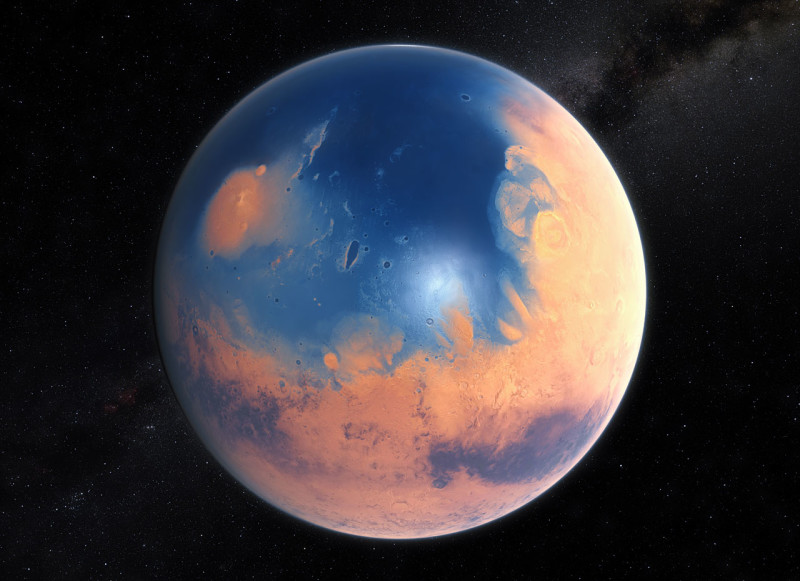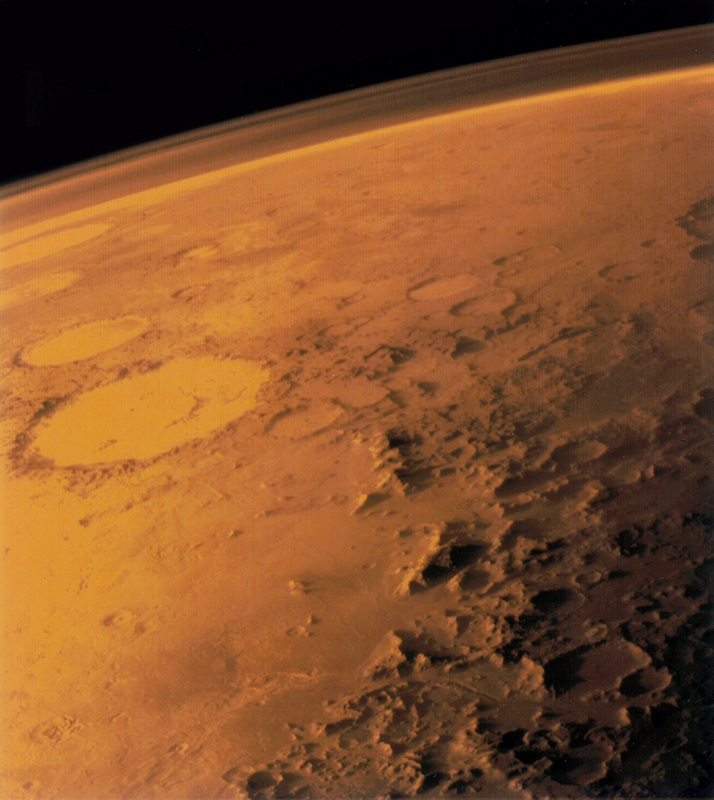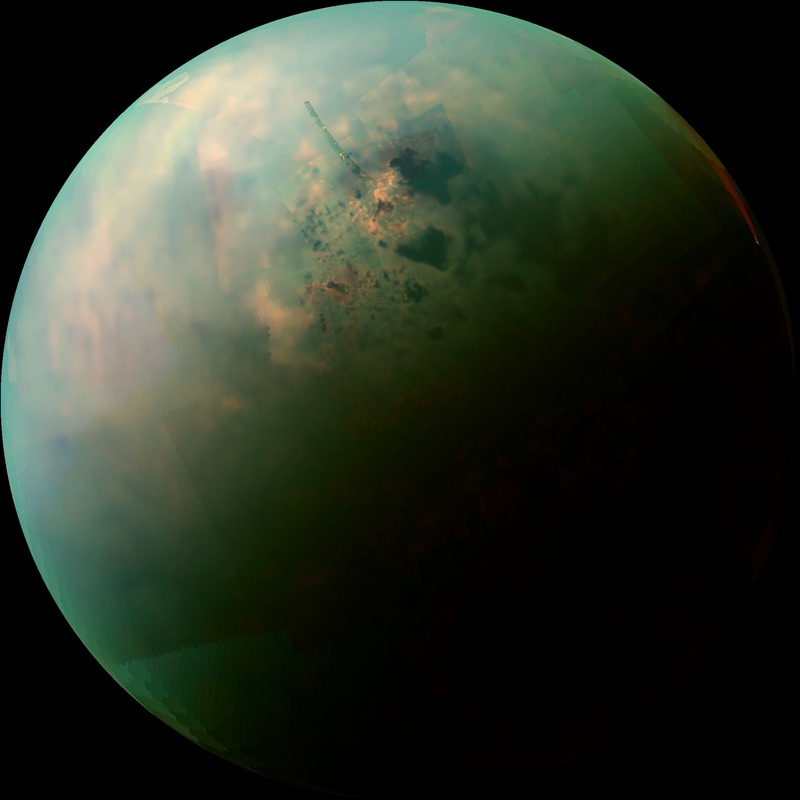 An artist imagines what Mars once looked like. Credit: ESO/M. Kornmesser/N. Risinger (skysurvey.org) An artist imagines what Mars once looked like. Credit: ESO/M. Kornmesser/N. Risinger (skysurvey.org) Climate historians explore how climate change influenced human history. Until now, their research has investigated environmental changes on Earth, and with good reason. Many examine how climate change affected human beings in centuries when space travel could scarcely be imagined. Others are too concerned with contextualizing global warming to consider environments beyond Earth. However, recent breakthroughs in scientific understandings of Mars’s watery past suggest that climate history can, and should, expand into the Solar System. For more than two decades, the presence of an ancient Martian ocean has been a source of academic controversy. In recent years, radar and visual maps provided by orbiting space probes have strongly supported the existence of an ocean, billions of years ago. The European Space Agency’s “Mars Express” orbiter, for instance, detected probable ocean floor sediments in regions ringed by ancient Martian shorelines. Scientists at the University of Colorado at Boulder also mapped river deltas on the Martian service that apparently fed into vanished oceans. Now, planetary scientist Geronimo Villanueva and a team of researchers have published an article in the journal Science that provides compelling new evidence for a vast, long-lived Martian ocean. Their article has received major media attention, and, as of this writing, is on the front page of CNN. The sad history of the Martian environment has consequences for humans today. Water is an essential ingredient for life as we know it. Such life had plenty of time to evolve in the Martian ocean, as it developed in ours. Moreover, the vast Martian water reserves could not disappear entirely. The planet's southern ice cap alone contains enough frozen water to cover the entire surface of Mars. Every cubic foot of Martian soil contains two pints of water, and groundwater may still flow deep underground. In coming decades, we will probably discover the remnants, and perhaps the continued existence, of microbial life on Mars. That discovery will transform how we understand our place in the universe. Even without that breakthrough, human exploration and colonization of Mars will be influenced by the history of the planet’s atmosphere, hydrosphere, cryosphere, and perhaps biosphere. The presence of water on Mars will be essential for the survival of future colonists. The historical transformation of Mars from habitable world to frozen wasteland provides a window into what might have been on Earth, and that will encourage scientific missions. The Martian past might even provide a romantic stimulus for a terraforming project that aims to restore the planet to the liveable world it once was. New revelations about Mars make clear that relationships between climate change and human activity are no longer be confined to Earth. Other worlds offer additional examples. Venus, the hottest planet in our solar system, provides an instance of a runaway greenhouse effect, a warning for our future that is often cited by advocates for action on climate change. Titan’s complex atmosphere and hydrosphere have yielded seas rich in the building blocks of potentially very alien life. Past, present, and future environmental change on these and other worlds is shaping, and will shape, how we see ourselves. Climate change is influencing our history across the void of space.
~Dagomar Degroot Author's note: I explore these ideas in greater detail in a journal article that I am preparing for submission. Source: Villanueva, G. L., M. J. Mumma, R. E. Novak, H. U. Käufl, P. Hartogh, T. Encrenaz, A. Tokunaga, A. Khayat, and M. D. Smith. "Strong water isotopic anomalies in the martian atmosphere: Probing current and ancient reservoirs." Science, 2015. DOI: 10.1126/science.aaa3630 |
Archives
March 2022
Categories
All
|



 RSS Feed
RSS Feed